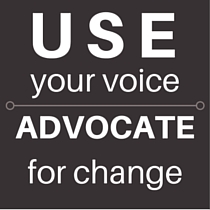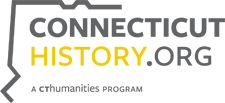If you ask me why I became an American citizen, I’ll tell you that one of the main reasons is my Mexican father.
While he made sure to pass on every bit of his pride in our Mexican heritage to me – including making sure I’d speak Spanish – he also made sure I knew that America was more than “mere” economic opportunity.
For example, we’d watch Walter Cronkite together every weeknight, and he’d take the time to explain the news. Two memories in particular stand out.
We watched a report about Vietnam protestors. He pointed out to me that their actions would be far riskier and deadlier to them in other countries, including Mexico; and that was assuming that they’d be allowed to gather at all.
When Richard Nixon resigned, he told me to pay careful attention. It might be the most important historical moment I’d ever witness, he said. The United States had just showed the world how a strong democracy could hold even a sitting president accountable and conduct a leadership transition peacefully under the law.
By the time I became a citizen in 1990, I understood that America wasn’t perfect. But I truly believed that its aspirations as set forth in the Declaration of Independence and the framework contained in the Constitution give Americans the best chance among all nations to “create a more perfect union.”
To be sure, my belief at the time, though fervent, felt a little removed, even academic. I was just young enough that the civil rights movement was history to me. I figured I’d certainly never need to stand up for my faith in the American experiment.
Almost thirty years later, I found myself leading a candlelight prayer vigil. We were literally fighting city hall – worse – its police department, which, despite the reliable eyewitness accounts and data we had, denied that it was profiling Latinos, let alone abusing and beating them.
A year or so later, against all odds, my church, made up of mostly new Latino immigrants (many of whom were undocumented) exercising their constitutional rights, actually won. The police department was placed under Federal supervision, and four officers were convicted.
Trust me, I didn’t plan on becoming any kind of activist. I was hoping to have at bare minimum your average American life, blessed with a healthy family and seasoned by some nice achievements in a white-collar career.
But when confronted with this situation, I found that I really believed in my adopted country’s history and promise. I’d read about Martin Luther King Jr. and the many other heroes of the civil rights movement. I particularly admired the advocacy of Frederick Douglass and his life journey, a journey that made him more of a self-made man than Abraham Lincoln. In some ways my father’s own journey paralleled his. Despite overwhelming challenges, Douglass and King believed and persevered and won. So could we.
In many other countries, the badge dictates the law and the law serves the powerful. In the United States, however imperfectly, we proved again that people have the right to speak up and ensure that the badge serves the law and the law serves the people.
I’m proud to be an American. I’m even prouder to have played a very small part in continuing the struggle for civil rights so that we can get closer to that “perfect union,” and for justifying a Mexican’s faith in American democracy.
Angel Fernandez-Chavero, CT Humanities Board Member and Managing Director, Aspire Praxis
Angel and the Rev. James Manship were honored for their civil rights work by the National Council of La Raza with the 2012 Graciela Olivarez Award “for the betterment of the Hispanic community that is national in scope [and] recent and relevant to contemporary Hispanic America.”









